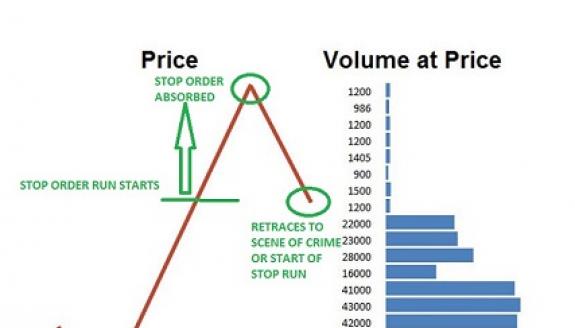
Bonds selling before maturity has several risks, but many investors prefer to do this because it frees up capital for other investments. It is a good idea to sell your bonds before maturity if you don’t want to be in debt. Before you sell your bonds, however, it is a good idea to first liquidate any other investments. Below are some risks of selling bonds before maturity. Below are some considerations to make before you sell your bonds. When selling bonds, you should also consider the creditworthiness of the issuer.
Interest rates
When you sell bonds, there are many reasons to be attentive to interest rates. Bonds are important part of any well-balanced portfolio, and understanding interest rates can help you adjust your holdings when rates change. Experts can calculate the risks and help you minimize them. These funds will help to keep your portfolio as balanced and healthy as possible. Investing in bonds through ETFs or mutual funds can help you reduce risk and leave the math to the pros.

Issuer creditworthiness
When buying bonds, investors need to assess the creditworthiness the issuer. Rating agencies determine a debt’s creditworthiness by analysing its financial strength as well as the company's ability pay its obligations. Rating agencies assign ratings based upon their confidence in the issuer. However, this rating may not reflect the actual risk of default. Rating agencies' ratings can be extremely useful in determining the financial stability and risk of a bond issuer. These ratings are often included as part of the prospectus.
Price of bond
The formula of the coupon rate, yield at maturity, par value, tenor, and par value determines the selling price of bonds. Both the primary and secondary market factors play a role in determining the price, such as the issuing company's creditworthiness and liquidity, and the time between the next coupon payment. Market conditions affect the price of a bond. A look at the most commonly used factors will give you a better idea about the bond's cost.
Redeem government savings bonds
There are three ways to redeem your government savings bonds. You can cash them in January, July or October. To cash your bonds, however, you might need to visit a Federal Reserve Bank Savings Bond Process Site. These locations can also be found on TreasuryDirect. You will need to provide a photo ID as well as a Power of Attorney in order to redeem your bonds. If the bond is held by a deceased person the bearer may be required to present a death certificates.

Selling bonds in secondary market
The secondary market is the best place to sell bonds before they mature. The secondary market is not the same as buying stocks and you should be aware of several things when selling bonds. Here are some of the key parameters that you need to remember.
FAQ
What are the benefits to investing through a mutual funds?
-
Low cost - buying shares directly from a company is expensive. A mutual fund can be cheaper than buying shares directly.
-
Diversification: Most mutual funds have a wide range of securities. The value of one security type will drop, while the value of others will rise.
-
Professional management - professional mangers ensure that the fund only holds securities that are compatible with its objectives.
-
Liquidity: Mutual funds allow you to have instant access cash. You can withdraw your funds whenever you wish.
-
Tax efficiency- Mutual funds can be tax efficient. You don't need to worry about capital gains and losses until you sell your shares.
-
Buy and sell of shares are free from transaction costs.
-
Mutual funds are simple to use. All you need is a bank account and some money.
-
Flexibility - you can change your holdings as often as possible without incurring additional fees.
-
Access to information - You can view the fund's performance and see its current status.
-
You can ask questions of the fund manager and receive investment advice.
-
Security – You can see exactly what level of security you hold.
-
Control - you can control the way the fund makes its investment decisions.
-
Portfolio tracking - You can track the performance over time of your portfolio.
-
Easy withdrawal - You can withdraw money from the fund quickly.
There are some disadvantages to investing in mutual funds
-
Limited selection - A mutual fund may not offer every investment opportunity.
-
High expense ratio - Brokerage charges, administrative fees and operating expenses are some of the costs associated with owning shares in a mutual fund. These expenses can impact your return.
-
Lack of liquidity - many mutual fund do not accept deposits. These mutual funds must be purchased using cash. This limit the amount of money that you can invest.
-
Poor customer service: There is no single point of contact for mutual fund customers who have problems. Instead, you must deal with the fund's salespeople, brokers, and administrators.
-
Ridiculous - If the fund is insolvent, you may lose everything.
Are bonds tradeable
Yes, they do! They can be traded on the same exchanges as shares. They have been traded on exchanges for many years.
They are different in that you can't buy bonds directly from the issuer. They can only be bought through a broker.
This makes buying bonds easier because there are fewer intermediaries involved. This means that selling bonds is easier if someone is interested in buying them.
There are different types of bonds available. Different bonds pay different interest rates.
Some pay interest every quarter, while some pay it annually. These differences make it easy to compare bonds against each other.
Bonds are a great way to invest money. If you put PS10,000 into a savings account, you'd earn 0.75% per year. This amount would yield 12.5% annually if it were invested in a 10-year bond.
If you put all these investments into one portfolio, then your total return over ten-years would be higher using bond investment.
What is the role and function of the Securities and Exchange Commission
SEC regulates brokerage-dealers, securities exchanges, investment firms, and any other entities involved with the distribution of securities. It also enforces federal securities laws.
What is security in the stock exchange?
Security can be described as an asset that generates income. Shares in companies are the most popular type of security.
Different types of securities can be issued by a company, including bonds, preferred stock, and common stock.
The earnings per share (EPS), and the dividends paid by the company determine the value of a share.
When you buy a share, you own part of the business and have a claim on future profits. If the company pays a payout, you get money from them.
Your shares may be sold at anytime.
What is a REIT and what are its benefits?
A real estate investment Trust (REIT), or real estate trust, is an entity which owns income-producing property such as office buildings, shopping centres, offices buildings, hotels and industrial parks. These are publicly traded companies that pay dividends instead of corporate taxes to shareholders.
They are very similar to corporations, except they own property and not produce goods.
Statistics
- Ratchet down that 10% if you don't yet have a healthy emergency fund and 10% to 15% of your income funneled into a retirement savings account. (nerdwallet.com)
- Individuals with very limited financial experience are either terrified by horror stories of average investors losing 50% of their portfolio value or are beguiled by "hot tips" that bear the promise of huge rewards but seldom pay off. (investopedia.com)
- The S&P 500 has grown about 10.5% per year since its establishment in the 1920s. (investopedia.com)
- US resident who opens a new IBKR Pro individual or joint account receives a 0.25% rate reduction on margin loans. (nerdwallet.com)
External Links
How To
How to make your trading plan
A trading plan helps you manage your money effectively. It helps you identify your financial goals and how much you have.
Before you create a trading program, consider your goals. You may want to make more money, earn more interest, or save money. You might want to invest your money in shares and bonds if it's saving you money. You could save some interest or purchase a home if you are earning it. And if you want to spend less, perhaps you'd like to go on holiday or buy yourself something nice.
Once you know your financial goals, you will need to figure out how much you can afford to start. This will depend on where and how much you have to start with. Also, consider how much money you make each month (or week). The amount you take home after tax is called your income.
Next, make sure you have enough cash to cover your expenses. These include bills, rent, food, travel costs, and anything else you need to pay. All these things add up to your total monthly expenditure.
Finally, figure out what amount you have left over at month's end. This is your net discretionary income.
You're now able to determine how to spend your money the most efficiently.
You can download one from the internet to get started with a basic trading plan. You can also ask an expert in investing to help you build one.
Here's an example spreadsheet that you can open with Microsoft Excel.
This will show all of your income and expenses so far. You will notice that this includes your current balance in the bank and your investment portfolio.
And here's another example. A financial planner has designed this one.
It will help you calculate how much risk you can afford.
Remember: don't try to predict the future. Instead, be focused on today's money management.